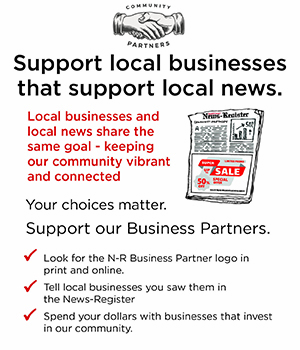Worth Mathewson Make a difference: Buy a duck stamp
For those interested in the welfare of wildlife, there is an excellent opportunity available at any post office. For $25, one can buy a Migratory Bird Hunting and Conservation Stamp, commonly known as a Duck Stamp.
Hunters of waterfowl are required to buy the stamp. For everyone else, it’s voluntary but greatly beneficial.
Results from the sale of stamps, since their debut in 1934, have proven remarkable.
From every dollar of proceeds, 98 cents goes to the lease or purchase of wildlife habitat for the National Wildlife Refuge System. That has so far funneled $800 million into protection of 5.7 million acres of habitat.
The first stamp sold for $1. Over the years, the price has been increased to $2, $3, $5 and so on, until reaching today’s $25.
The increases were driven by hunters, who wanted to do more to save disappearing waterfowl habitat. And they certainly have.
The effort has been augmented by Ducks Unlimited. Over the last 80 years, it has purchased 13.8 million acres of additional habitat.
Waterfowl aren’t the only beneficiaries when wetlands are preserved, of course. Many other species also benefit.
Residents of the Willamette Valley can revel in the results first hand by visiting one of the valley’s three excellent wildlife refuges — Finley, Baskett and Ankeny. Their creation was largely financed with Duck Stamp money.
Thousands of visitors from throughout the country tour these refuges every year to view wildlife in its native habitat. But there’s a quandary: The majority don’t seize the opportunity to contribute by purchasing a Duck Stamp.
Several years ago, I asked members of the Salem Audubon Society if they visited the local refuges on a regular basis. Every hand went up.
Next I asked if they had purchased a Duck Stamp to help support the refuge system. Only one hand went up, and it was mine.
Frankly, non-hunters with an interest in wildlife seem to keep their wallets firmly in their pockets or purses when it comes to supporting habitat preservation in Oregon. I find that deeply disappointing.
I can think of no better example than the Oregon Department of Fish and Wildlife’s non-game program.
The strategy extends a crucial lifeline to a multitude of Oregon species not subject to hunting or fishing. The scope is large, ranging from western pond turles to bats and rare birds.
But ODFW has been struggling with major funding shortfalls. As a result, funding for its non-game program have been slashed.
Why non-game in particular? The answer is simple: ODFW is almost entirely funded through sales of hunting, fishing and trapping licenses, so its game programs naturally take priority.
Wildlife enthusiasts not engaged in fishing or hunting have been offered ample opportunity to help fund non-game efforts.
The most prominent avenue remains the voluntary non-game checkoff listed on Oregon tax returns.
Returns list 29 charitable options and the non-game fund appears as No. 13. Unfortunately, it has been producing barely a trickle in recent years.
A plan was proposed a few years ago to place a small tax on birdseed to help support ODFW’s non-game program. But it was met with thunderous disapproval, largely from those who purchase seed.
I find that well beyond disappointing.
In the U.S., more than $1 billion is being spent annually on birdseed, presumably by people trying to help out. What difference would a modest additional amount make?
The extra would be earmarked for helping native species in other ways — including the western pond turtle, which doesn’t benefit from private party feeding because it doesn’t eat seed.
------
A lifelong wildlife advocate and enthusiast, Worth Mathewson lives in rural Perrydale with his wife, Marge. In addition to engaging in hunting and bird watching, he has written numerous books and magazine articles on outdoor topics. He also writes a wildlife column for the News-Register.













Comments
Lulu
Why should I buy a duck stamp so you can go out and slaughter more ducks?
Clay
Hunters and fisherman provide the overwhelming share of the funding that help conserve our wildlife and fisheries and preserve our wild lands. Can you say the same for other activities or organizations?! Thank you sportsmen and sportwomen for this amazing gift!